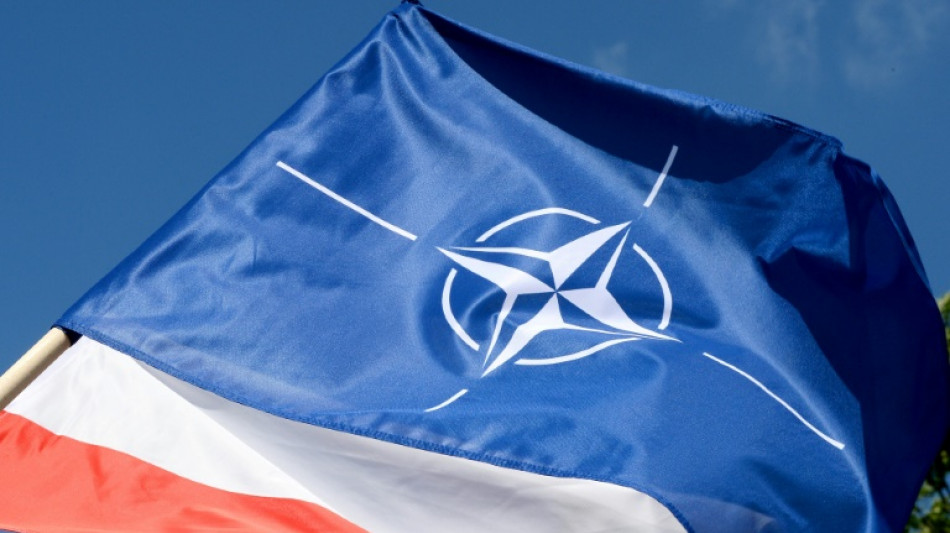
-
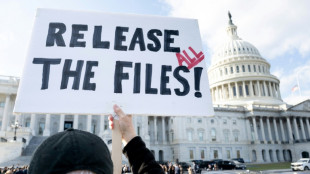 US lawmakers set for explosive vote on Epstein files
US lawmakers set for explosive vote on Epstein files
-
Gianfranco Rosi: the slow documentary maker in a frantic world

-
 P.Priime, Nigeria's young leading Afrobeats producer
P.Priime, Nigeria's young leading Afrobeats producer
-
Merz, Macron to push for European digital 'sovereignty'
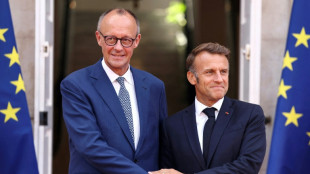
-
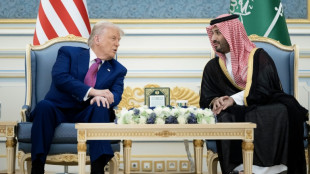 Trump hosts Saudi prince for first time since Khashoggi killing
Trump hosts Saudi prince for first time since Khashoggi killing
-
Tonga's Katoa out of NRL season after brain surgery

-
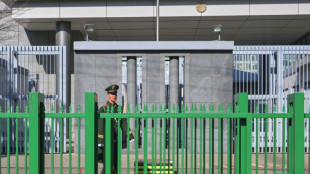 Japan warns citizens in China over safety amid Taiwan row
Japan warns citizens in China over safety amid Taiwan row
-
In Somalia, a shaky front line barely holds back the 'dogs of war'

-
 Shares in 'Baby Shark' studio jump on market debut
Shares in 'Baby Shark' studio jump on market debut
-
Thunder breeze past Pelicans, Pistons overpower Pacers

-
 Grieving Cowboys remember Kneeland, defeat Raiders
Grieving Cowboys remember Kneeland, defeat Raiders
-
Loaf behind bars: Aussie inmate says Vegemite a human right

-
 In film's second act, 'Wicked' goes beyond Broadway musical
In film's second act, 'Wicked' goes beyond Broadway musical
-
Asian markets track Wall St down with Nvidia, US jobs in view

-
 Scott Boland: the best 'spare' fast bowler around
Scott Boland: the best 'spare' fast bowler around
-
Fire and Ashes: England bank on fast bowling barrage in Australia
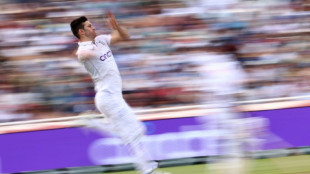
-
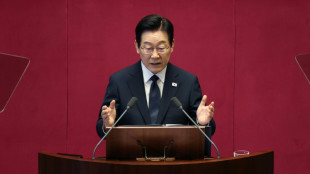 North Korea says Seoul-US sub deal will trigger 'nuclear domino' effect
North Korea says Seoul-US sub deal will trigger 'nuclear domino' effect
-
Education for girls hit hard by India's drying wells

-
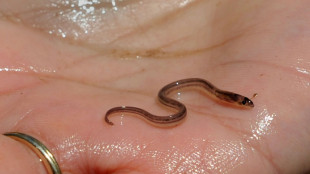 Haitian gangs getting rich off murky market for baby eels
Haitian gangs getting rich off murky market for baby eels
-
Trump says will talk to Venezuela's Maduro, 'OK' with US strikes on Mexico
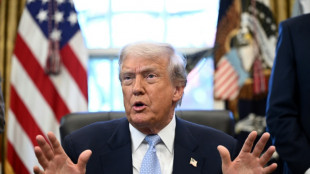
-
 Oscar Piastri wins Australia's top sports honour
Oscar Piastri wins Australia's top sports honour
-
'Severely restricted': Russia's Saint Petersburg faces cultural crackdown
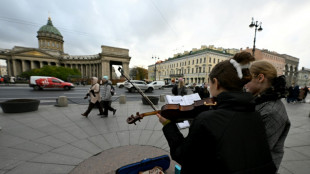
-
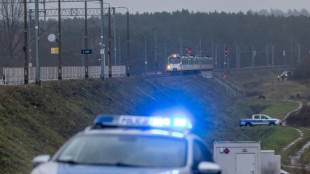 Polish PM denounces 'sabotage' of railway supply line to Ukraine
Polish PM denounces 'sabotage' of railway supply line to Ukraine
-
UK toughens asylum system with radical overhaul

-
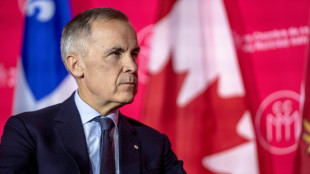 Carney's Liberals pass budget, avoiding snap Canada election
Carney's Liberals pass budget, avoiding snap Canada election
-
LeBron back in training, edges closer to Lakers return

-
 Climate talks run into night as COP30 hosts seek breakthrough
Climate talks run into night as COP30 hosts seek breakthrough
-
Germany and Netherlands lock up World Cup spots in style

-
 Germany's Woltemade hopes for 2026 World Cup spot after scoring again
Germany's Woltemade hopes for 2026 World Cup spot after scoring again
-
Germany 'send message' with Slovakia rout to reach 2026 World Cup

-
 Trump unveils fast-track visas for World Cup ticket holders
Trump unveils fast-track visas for World Cup ticket holders
-
Netherlands qualify for World Cup, Poland in play-offs

-
 Germany crush Slovakia to qualify for 2026 World Cup
Germany crush Slovakia to qualify for 2026 World Cup
-
Stocks gloomy on earnings and tech jitters, US rate worries

-
 'In it to win it': Australia doubles down on climate hosting bid
'In it to win it': Australia doubles down on climate hosting bid
-
Former NFL star Brown could face 30 yrs jail for shooting case: prosecutor

-
 Fate of Canada government hinges on tight budget vote
Fate of Canada government hinges on tight budget vote
-
New research measures how much plastic is lethal for marine life

-
 Mbappe, PSG face off in multi-million lawsuit
Mbappe, PSG face off in multi-million lawsuit
-
EU defends carbon tax as ministers take over COP30 negotiations

-
 McCartney to release silent AI protest song
McCartney to release silent AI protest song
-
Stocks tepid on uncertainty over earnings, tech rally, US rates

-
 Louvre shuts gallery over ceiling safety fears
Louvre shuts gallery over ceiling safety fears
-
'Stranded, stressed' giraffes in Kenya relocated as habitats encroached

-
 US Supreme Court to hear migrant asylum claim case
US Supreme Court to hear migrant asylum claim case
-
Western aid cuts could cause 22.6 million deaths, researchers say

-
 Clarke hails Scotland 'legends' ahead of crunch World Cup qualifier
Clarke hails Scotland 'legends' ahead of crunch World Cup qualifier
-
S.Africa says 'suspicious' flights from Israel show 'agenda to cleanse Palestinians'

-
 South Korea pledges to phase out coal plants at COP30
South Korea pledges to phase out coal plants at COP30
-
Ex-PSG footballer Hamraoui claims 3.5m euros damages against club


Russian drones in Poland put NATO to the test
The intrusion of Russian drones into Poland -- whether deliberate, as Ukraine's European allies contend, or accidental -- is a test of NATO's readiness and resolve, experts say.
- Were the violations deliberate? -
The overflights came as Russia unleashed a barrage of strikes across Ukraine overnight, including in the western city of Lviv, around 50 miles (80 kilometres) from the Polish border.
Poland's airspace was violated 19 times, Prime Minister Donald Tusk said Wednesday, and at least three drones were shot down after Warsaw and its allies scrambled jets.
Russia's defence ministry denied that it had targeted Poland but such cases have fuelled speculation that President Vladimir Putin is testing how far he can push the West.
EU foreign policy chief Kaja Kallas said the breach of Polish airspace appeared to be "intentional, not accidental".
But Belarus, a Russian ally bordering Ukraine and Poland, said Wednesday it had also shot down drones that had "lost their trajectory" over its territory, raising questions over whether the intrusion was deliberate or drones had simply gone astray.
The low-cost drones used by Russia are vulnerable to Ukrainian jamming that can throw them off course.
There are precedents however for deliberate intrusions, said Romain Le Quiniou, head of the Euro Creative think tank.
"There have been multiple entrances by enemy drones since 2022 in Poland, Romania, Lithuania and even Croatia," Le Quiniou told AFP.
In July, Polish and Lithuanian SIM cards -- used to guide drones via local mobile networks -- were found in drones shot down over Ukraine, the Defence Express daily reported.
"It seems very unlikely to me that around 20 drones would accidentally find themselves in a territory where they are not supposed to be," said Ulrike Franke, a researcher at the European Council on Foreign Relations.
- What is Putin's goal? –
The intrusion came just days before Russian President Vladimir Putin is to launch his Zapad-2025 military exercise near NATO's borders, and days after European countries in a "coalition of the willing" pledged they would implement security guarantees for Kyiv in the event of a ceasefire.
The diplomatic and military context is key to understanding the true nature of the intrusions, said Mick Ryan of the Lowy Institute's international security programme.
Ryan described the violations as "probing" -- an attempt to gauge NATO's readiness to retaliate in the event of confrontations that could occur if the bloc establishes bases in eastern Poland to support a future presence in Ukraine.
The overflights tested NATO's air defences and, more importantly, Western resolve over its security guarantees, said Marko Mihkelson, head of the Estonian parliament's foreign affairs commission.
"By entering Polish airspace with attack drones, Russia is testing not only Poland but also the United States as NATO's main deterrent force," he wrote on X.
US Democratic senator Dick Durbin said the repeated violations of NATO airspace were a "warning".
"Vladimir Putin is testing our determination to protect Poland and the Baltic countries," he said.
Whether deliberate or not, these overflights are "not seen as the start of something bigger", a NATO diplomat, who spoke on condition of anonymity, told AFP.
"It looks like it was either aimed at testing NATO or... the aim was to approach targets in Ukraine from a different angle," the diplomat added.
– Is NATO ready? -
NATO's swift response showed its "capability and resolve to defend Allied territory", the bloc's top commander in Europe, US General Alexus Grynkewich, wrote on X.
Doubts remain however over NATO and Europe's ability to withstand any large-scale Russian air assault, beyond the handful of drones intercepted.
The alliance's strategy needs to catch up to drone warfare, said retired US general Ben Hodges.
"Using F35 and F22 versus drones shows we are not yet prepared," he said.
And on missile defence, Europe's strategy of sheltering under a shield "is a losing one", said German researcher Fabian Hoffman.
"Russia produces roughly one-and-a-half to two times as many ballistic and cruise missiles as Europe produces interceptors, and it is far outpacing Europe in long-range drone production," he said, calling the current approach "unsustainable" in the long run.
Put more simply, cost is a concern, said Admiral Pierre Vandier, the top NATO commander overseeing battlefield innovation.
"Western countries have a price-per-shot problem: if we fire $1 million missiles at $10,000 targets, one day, we will lose," he said.
H.Jarrar--SF-PST
